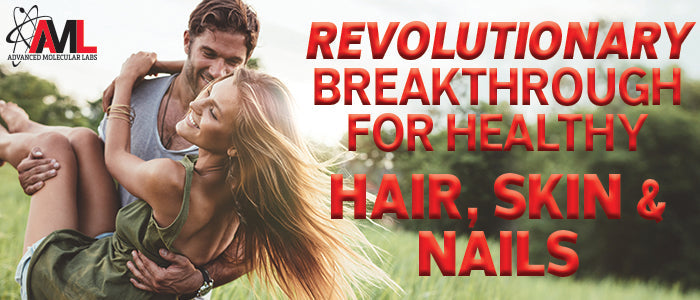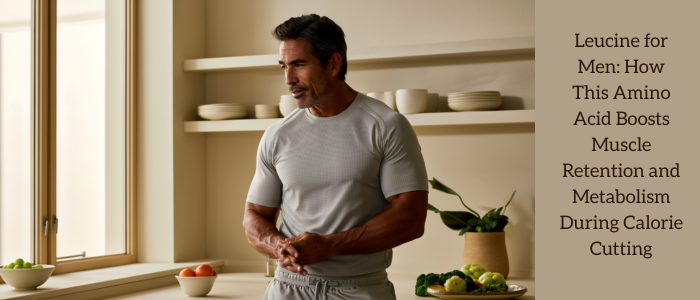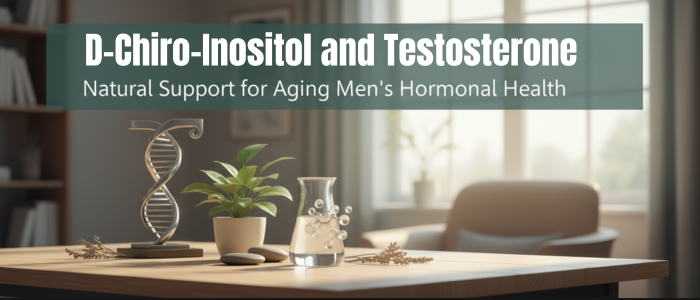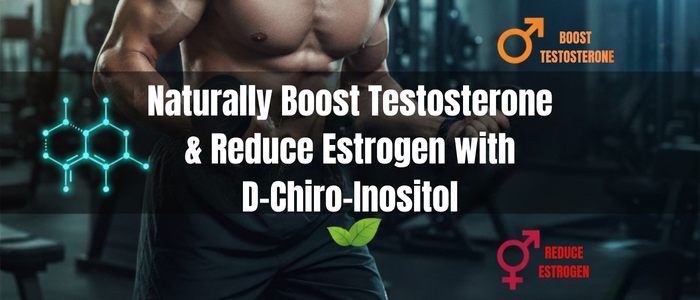


Top Hair and Skin and Nails Vitamins for Radiant Health
There’s recent studies that give us information about what the best vitamins for skin, hair, and nails are.
Take a look at Collagen - Collagen has experienced an enormous growth in popularity in recent times, and the sheer number of various collagen supplements on the market today is simply astounding.
For those of you who may not be familiar with collagen, you might be wondering what all the hype is about?
For starters, collagen is the primary structural protein in the body and it is composed chiefly of two amino acids -- glycine and proline. Collagen is present in your skin, hair, nails, bones, muscles, tendons, blood vessels, and even the digestive system, making it essential for collagen and hair health.
It’s what gives your skin elasticity and strength, and, to a larger extent, it is the “glue” that holds your body together!
Unfortunately, the amount of collagen naturally produced by the body gradually declines with age, as with most other things in life (such as anabolic hormones like testosterone), which is why a biotin collagen supplement can be beneficial.
Other factors can also contribute to collagen degradation (thereby impacting the quality of the body’s essential structures).
Specifically, prolonged exposure to UV rays and excessive consumption of sugar are both known to reduce collagen synthesis, as do other “vices” such as drinking alcohol and smoking.[1,2,3]
To top it off, the typical Western diet isn’t very rich in collagen-containing foods, creating the perfect storm for accelerated wrinkling, loss of skin elasticity, and brittle hair & nails.
Something else to keep in mind is that there isn’t just one type of collagen present in the body -- there are 16 different kinds of collagen found throughout the body, which can be supported by dietary supplement options.[4]
Collagen types I, II, and III account for the vast majority of the collagen in your body (around 90%).
WIth that in mind, here’s a little bit more about the three “heavy hitters” of collagen:
- Type I: The most abundant form of collagen that is found in tendons and serves as a crucial building block for hair, skin, nails, blood vessels, and teeth.[4]
- Type II: Most often found in joint cartilage.[5]
- Type III: The second most abundant form of collagen that is almost always found in association with Type I collagen.[4]
We mentioned that collagen supplements have grown in popularity recently, but the truth of the matter is that most of the products on the market are lacking in one or more areas. They are either not dosing ingredients efficaciously or flat out leaving them out of the formula altogether.
This led to the development of the AML Hair Skin & Nails Cocktail -- a comprehensive collagen-based formula rooted in science!
Best Vitamins for Hair, Skin, and Nails: Discover the Best Vitamins for Skin
What’s in AML Hair, Skin & Nails? Discover the key ingredients in our dietary supplement.
Hydrolyzed Collagen Protein
No surprise here.
Any hair, skin, & nails supplement worth the bottle it’s packed in is going to contain collagen protein. Unfortunately, most of the supplements on the market don’t include enough collagen protein or the right types.
AML Hair, Skin & Nails is packing an impressive 15,000mg of hydrolyzed collagen in every serving, making it one of the best hair skin and nails formulas available.
Hydrolyzing the collagen protein breaks the protein’s amino acid chains, making it easier to digest and absorb the key amino acids in collagen -- glycine, proline, hydroxyproline, and arginine.
Collagen is efficiently utilized by the body and supplementation has been found to:
- Improve skin elasticity[6]
- Decrease activity-related joint pain[7]
- Aid the recovery of lost cartilage[8]
- Strengthen tendons and ligaments[9,10]
- Increase lean body mass in elderly men and premenopausal women[11,12]
Other studies indicate that supplementation with a combination of 15 grams of gelatin and vitamin C enhances collagen synthesis and tissue repair.[33]
AML Hair Skin & Nails Cocktail contains 15 grams hydrolyzed collagen protein, derived from 15 grams of gelatin. We’ve also included vitamin C at an impressive 1,500mg, which we’ll discuss a little further down.
But, first let’s discuss another premium source of collagen included in AML Hair Skin & Nails cocktail...
VERISOL® Bioactive Collagen Peptides
VERISOL is a patented, research-backed blend of specific bioactive collagen peptides known to stimulate skin metabolism and counteract the loss of collagenous extracellular matrix from the inside.
In fact, studies find that supplementing with Verisol® reduced skin wrinkles and had positive effects on dermal matrix synthesis.[6,13]
Research has found that daily supplementation with 2.5g VERISOL (the same dose as AML Hair, Skin & Nails) over a period of 6 months led to a clear improvement of the skin appearance in women suffering from moderate cellulite.[14]
The Bioactive Collagen Peptides contained within VERISOL® have also been found to help improve growth and health of fingernails.[15]
Moreover, placebo-controlled studies in women ages 35-55 find that supplementation with VERISOL® resulted in greater skin elasticity (up to 15 %!). Researchers observed this improvement after just 4 weeks of using VERISOL and continued to note improvements after VERISOL® administration.[6]
Hydrolyzed Egg Shell Membrane
Hydrolyzed eggshell membrane contains a number of bioactive components that may impact the growth, development, and appearance of the hair, skin, or nails. For instance, Eggshell membrane contains hyaluronan as well as the glycosaminoglycans (GAG) -- hyaluronic acid.[16]
Hyaluronic acid production occurs in the skin and supplementation with hyaluronic acid has been shown to stimulate internal production of the compound, which is also known to improve skin wrinkles.[17]
A recent 2020 study also found that daily supplementation for 12 weeks with 450mg hydrolyzed eggshell membrane (the same dose in AML Hair, Skin & Nails) was associated with improvement in the appearance of facial skin and hair.[16]
Researchers also observed improvements in hair thickness, reductions in hair breakage, and improvements in hair growth at four, eight, and 12 weeks.[16]
Vitamin C
Vitamin C is an incredibly popular supplement, renowned for its antioxidant prowess, that is typically used in support of the immune system.
However, vitamin C also plays a few important roles regarding collagen synthesis and skin protection.
For instance, Vitamin C has a vital role in the healing of connective tissue as it is a cofactor for prolyl hydroxylase and lysyl hydroxylase -- a pair of enzymes that catalyze the hydroxylation of proline and lysine residues of procollagen, thereby encouraging the proper folding of the stable collagen triple-helix conformation.[18,19]
In addition to its role in collagen synthesis, vitamin C also acts as a powerful antioxidant capable of neutralizing damaging reactive oxygen species (ROS) responsible for cell apoptosis.
Preliminary studies even indicate that vitamin C may increase type 1 collagen synthesis, accelerate bone healing after fractures, and reduce oxidative stress parameters.[20]
N-Acetyl Cysteine
N-Acetyl Cysteine is an enhanced, more bioavailable form of the amino acid L-Cysteine.
It’s regarded for its role in antioxidant production as it serves as one of the primary precursors for glutathione -- a “master” antioxidant in the body.
Most often, NAC is supplemented in support of the liver and/or immune system as there is considerable amounts of evidence noting its benefits.
But, NAC also has been found to support the health of hair, skin, and nails.
For starters, hair is 95% keratin. Cysteine is the most abundant amino acid in keratin protein. NAC in combination with Vitamin C has also been found to help protect skin and hair from UV light.[21]
NAC has also been found to limit the synthesis and release of inflammatory cytokines such as TNF-α, IL-8, IL-6, MP9, and IL-1β, and a recently published review finds that it may be helpful for individuals with acne vulgaris.[22]
Last, but certainly not least, NAC is known to have a role in protection from radiation-induced skin damage including photo-ageing, photocarcinogenesis and radiation dermatitis.[23]
Selenium
Selenium is an essential trace element that is naturally present in many foods, including Brazil nuts and seafood, and it serves as an important antioxidant as well as a building block for over 20+ selenoproteins that play critical roles:
- Reproduction
- DNA synthesis
- Thyroid hormone metabolism
- Protection from oxidative damage (such as UV-related stress)
- Defense from infection
A recent meta-analysis found that selenium levels were associated with several skin diseases and the disease severity.[24] Moreover, high selenium levels tended to be a protective factor in certain skin diseases.[24]
Vitamin E
Vitamin E is another essential micronutrient for the body as well as one that touts some impressive antioxidant effects.
Our skin is exposed to numerous environmental stressors, both physical and chemical, including UV-light. Excessive exposure to UV light causes oxidative damage and can lead to erythema, edema, skin thickening, and wrinkling as well as an increased incidence of skin cancer or precursor lesions.[25]
Multiples studies indicate that vitamin E may serve as a highly efficient antioxidant, thereby providing possibilities to decrease the frequency and severity of pathological events in the skin.[25,26]
The antioxidant power of Vitamin E, along with that of vitamin C, NAC, and selenium, become all the more important when you also consider some recent research which indicates that exposure to air pollution particulate matter (something to which we’re all exposed on a daily basis) is associated with hair loss.[34]
Zinc
Zinc is an essential mineral involved in hundreds of biological processes and has been used as a therapeutic modality for centuries.[27]
For instance, zinc plays a role in:
- Immune status
- Wound repair
- Reproductive function
- Macrophage and neutrophil functions,
- Natural killer cell activity
Zinc also possesses antioxidant activity and has been found useful in preventing UV-induced damage and reducing the incidence of malignancies.[27]
The multifaceted mineral has also been used for a variety of dermatological conditions including warts, acne vulgaris, rosacea, melasma), and neoplasias.
Polyphenols from Red Wine & Grape Extracts
The wonders of grapes (and their offspring -- red wine) are known far and wide.
In large part, the health-promoting properties of grapes and red wine are attributed to their high polyphenol and flavonoid content.
Major bioactive compounds in grape extracts include catechin, epicatechin, and epicatechin gallate and its polymers. The compounds can donate electrons or protons to reactive oxygen species (ROS) and act as scavengers.
Furthermore, studies have shown that resveratrol (one of the main bioactives in grapes) may protect against UVB-mediated skin damage and offer some unique anti-aging benefits as well.[28,29]
Silicon
As we’ve mentioned a few times throughout this article, excessive chronic skin exposure to sunlight causes damage to the underlying connective tissue resulting in a loss of elasticity and firmness.
Silicon is believed to play a role in the formation and maintenance of connective tissue.
Researchers have investigated Choline-stabilized orthosilicic acid, since it is a bioavailable form of silicon, as a potential supplement for hair, skin, and nail health due to some animal studies suggesting it increased the hydroxyproline concentration in the dermis. Remember that hydroxyproline is one of the key amino acids of collagen.
Human studies found that 10mg of silicon from Choline-stabilized orthosilicic acid (the same dose included in AML Hair, Skin & Nails) had “a significant positive effect on skin surface and skin mechanical properties…”[30]
Researchers also noted improvements in hair and nail health as well, highlighting the importance of vitamins for strong nails.
Vitamin D3
If there’s one vitamin that has received more attention over the past 12+ months than vitamin C, it’s the “sunshine vitamin” -- Vitamin D.
Our bodies naturally produce vitamin D when the skin is exposed to direct sunlight. However, many individuals don’t spend enough time outdoors with adequate amounts of skin exposed in order for their bodies to synthesize the vitamin. There are also concerns over UV-induced skin damage from chronic excess exposure to sunlight.
All of this is to say that a significant portion of the population is deficient in Vitamin D, which has negative impacts on immune function, hormone production, bone metabolism, and much more.
B-Vitamins
Biotin (Vitamin B7) is a staple of many hair, skin, and nail supplements on the market; however, evidence is lacking and a great many supplements exceed the recommended daily intake of biotin.[31,32]
Research also indicates that the role folate and vitamin B12 serve in nucleic acid production suggests that they might play a role in the growth and health of hair. Furthermore, deficiencies in riboflavin, biotin, folate, and vitamin B12 have been associated with hair loss.
For this reason, AML Hair Skin & Nails includes a robustly-dosed B-vitamin complex to support energy production, cell metabolism, and hair, skin & nail health, similar to the benefits found in hair skin and nails gummies.
Takeaway - Best Hair Skin Nails Supplement
At the end of the day, there are a lot of options to consider when purchasing collagen and/or hair, skin, & nails supplements. However, few (if any) have been developed with the same care and attention as AML Hair, Skin, & Nails.
As with all of our products, we’ve invested countless hours of R&D into sourcing the best ingredients and creating a formula rooted in science.
Click here to learn more about AML Hair, Skin & Nails Cocktail, and why it’s the premier option on the market!
REFERENCES
-
Donejko M, Przylipiak A, Rysiak E, et al. Hyaluronic acid abrogates ethanol-dependent inhibition of collagen biosynthesis in cultured human fibroblasts. Drug Design, Development and Therapy. 2015;9:6225-6233. doi:10.2147/DDDT.S91968.
-
Overbeek SA, Braber S, Koelink PJ, et al.Cigarette Smoke-Induced Collagen Destruction; Key to Chronic Neutrophilic Airway Inflammation? Hartl D, ed. PLoS ONE. 2013;8(1):e55612. doi:10.1371/journal.pone.0055612.
-
Danby FW.Nutrition and aging skin: sugar and glycation. Clin Dermatol. 2010;28(4):409-411. doi:10.1016/j.clindermatol.2010.03.018.
-
Lodish H, Berk A, Zipursky SL, et al. Molecular Cell Biology. 4th edition. New York: W. H. Freeman; 2000. Section 22.3, Collagen: The Fibrous Proteins of the Matrix.
- Buckley MR et al. Distributions of types I, II and III collagen by region in the human supraspinatus tendon. Connect tissue res. 2013;54(6): 374–379.
- Proksch E., Segger D., Degwert J., Schunck M., Zague V., Oesser S. Oral supplementation of specific collagen peptides has beneficial effects on human skin physiology: A double-blind, placebo-controlled study. Skin. Pharmacol. Physiol. 2014;27:47–55. doi: 10.1159/000351376.
- Zdzieblik D., Oesser S., Gollhofer A., Koenig D. Corrigendum: Improvement of activity-related knee joint discomfort following supplementation of specific collagen peptides. Appl. Physiol. Nutr. Metab. 2017;42:1237. doi: 10.1139/apnm-2017-0693.
- McAlindon T.E., Nuite M., Krishnan N., Ruthazer R., Price L.L., Burstein D., Griffith J., Flechsenhar K. Change in knee osteoarthritis cartilage detected by delayed gadolinium enhanced magnetic resonance imaging following treatment with collagen hydrolysate: A pilot randomized controlled trial. Osteoarthr. Cartil. 2011;19:399–405. doi: 10.1016/j.joca.2011.01.001.
- Praet S.F.E., Purdam C.R., Welvaert M., Vlahovich N., Lovell G., Burke L.M., Gaida J.E., Manzanero S., Hughes D., Waddington G. Oral supplementation of specific collagen peptides combined with calf-strengthening exercises enhances function and reduces pain in Achilles tendinopathy patients. Nutrients. 2019;11:76. doi: 10.3390/nu11010076
- Dressler P., Gehring D., Zdzieblik D., Oesser S., Gollhofer A., König D. Improvement of functional ankle properties following supplementation with specific collagen peptides in athletes with chronic ankle instability. J. Sports Sci. Med. 2018;17:198–304. doi: 10.1016/j.jbmt.2018.09.037.
- Zdzieblik D., Oesser S., Baumstark M.W., Gollhofer A., König D. Collagen peptide supplementation in combination with resistance training improves body composition and increases muscle strength in elderly sarcopenic men: a randomised controlled trial. Br. J. Nutr. 2015;114:1237–1245. doi: 10.1017/S0007114515002810.
- Jendricke P., Centner C., Zdzieblik D., Gollhofer A., König D. Specific collagen peptides in combination with resistance training improve body composition and regional muscle strength in premenopausal women: A randomized controlled trial. Nutrients. 2019;11:892. doi: 10.3390/nu11040892
- Proksch E, Schunck M, Zague V, Segger D, Degwert J, Oesser S. Oral intake of specific bioactive collagen peptides reduces skin wrinkles and increases dermal matrix synthesis. Skin Pharmacol Physiol. 2014;27(3):113-9. doi: 10.1159/000355523. Epub 2013 Dec 24. PMID: 24401291.
- Schunck M, Zague V, Oesser S, Proksch E. Dietary Supplementation with Specific Collagen Peptides Has a Body Mass Index-Dependent Beneficial Effect on Cellulite Morphology. J Med Food. 2015;18(12):1340-1348. doi:10.1089/jmf.2015.0022
-
Hexsel D, Zague V, Schunck M, Siega C, Camozzato FO, Oesser S. Oral supplementation with specific bioactive collagen peptides improves nail growth and reduces symptoms of brittle nails. J Cosmet Dermatol. 2017;00:1–7. https://doi.org/10.1111/jocd.12393
- Kalman DS, Hewlings S. The effect of oral hydrolyzed eggshell membrane on the appearance of hair, skin, and nails in healthy middle-aged adults: A randomized double-blind placebo-controlled clinical trial. J Cosmet Dermatol. 2020;19(6):1463-1472. doi:10.1111/jocd.13275
- Oe M, Sakei S, Yoshida H, et al. Oral hyaluronan relieves wrinkles: a double blinded, placebo‐controlled study over a 12‐week period. Lin Cosmet Invest Dermatol. 2017;10:267‐
- Manela-Azulay M, Bagatin E. Cosmeceuticals vitamins. Clin Dermatol. 2009;27(5):469–474.
- Phillips CL, Combs SB, Pinnell SR. Effects of ascorbic acid on proliferation and collagen synthesis in relation to the donor age of human dermal fibroblasts. J Invest Dermatol. 1994;103(2):228–232
- DePhillipo NN, Aman ZS, Kennedy MI, Begley JP, Moatshe G, LaPrade RF. Efficacy of Vitamin C Supplementation on Collagen Synthesis and Oxidative Stress After Musculoskeletal Injuries: A Systematic Review. Orthop J Sports Med. 2018;6(10):2325967118804544. Published 2018 Oct 25. doi:10.1177/2325967118804544
- Millington KR, Marsh JM. UV damage to hair and the effect of antioxidants and metal chelators. Int J Cosmet Sci. 2020 Apr;42(2):174-184. doi: 10.1111/ics.12601. Epub 2020 Mar 11. PMID: 31955440.
-
Mardani, N, Mozafarpoor, S, Goodarzi, A, Nikkhah, F. A systematic review of N-acetylcysteine for treatment of acne vulgaris and acne-related associations and consequences: Focus on clinical studies. Dermatologic Therapy. 2021;e14915. https://doi.org/10.1111/dth.14915
- Adil M, Amin SS, Mohtashim M. N-acetylcysteine in dermatology. Indian Journal of Dermatology, Venereology and Leprology. 2018 Nov-Dec;84(6):652-659. DOI: 10.4103/ijdvl.ijdvl_33_18.
- Lv J, Ai P, Lei S, Zhou F, Chen S, Zhang Y. Selenium levels and skin diseases: systematic review and meta-analysis. J Trace Elem Med Biol. 2020 Dec;62:126548. doi: 10.1016/j.jtemb.2020.126548. Epub 2020 May 20. PMID: 32497930.
- Nachbar F, Korting HC. The role of vitamin E in normal and damaged skin. J Mol Med (Berl). 1995 Jan;73(1):7-17. doi: 10.1007/BF00203614. PMID: 7633944.
- Keen MA, Hassan I. Vitamin E in dermatology. Indian Dermatol Online J. 2016;7(4):311-315. doi:10.4103/2229-5178.185494
- Gupta M, Mahajan VK, Mehta KS, Chauhan PS. Zinc therapy in dermatology: a review. Dermatol Res Pract. 2014;2014:709152. doi:10.1155/2014/709152
-
Reagan-Shaw S, Mukhtar H, Ahmad N.Resveratrol imparts photoprotection of normal cells and enhances the efficacy of radiation therapy in cancer cells. Photochem Photobiol. 2008;84(2):415-421. doi:10.1111/j.1751-1097.2007.00279.x
-
Bastianetto S, Dumont Y, Duranton A, Vercauteren F, Breton L, Quirion R.Protective Action of Resveratrol in Human Skin: Possible Involvement of Specific Receptor Binding Sites. Deli MA, ed. PLoS ONE. 2010;5(9):e12935. doi:10.1371/journal.pone.0012935.
- Barel, A., Calomme, M., Timchenko, A., Paepe, K., Demeester, N., Rogiers, V., Clarys, P., & vanden berghe, D. (2005). Effect of oral intake of choline-stabilized orthosilicic acid on skin, nails and hair in women with photodamaged skin. Archives of Dermatological Research, 297, 147–153. https://doi.org/10.1007/s00403-005-0584-6
- Labrozzi A et al., (2020) Nutrients in Hair Supplements: Evaluation of their Function in Hair Loss Treatment. Hair Ther Transplant 10:150.
- Food and Drug Administration (FDA). The FDA warns that biotin may interfere with lab tests: FDA safety communication. Washington, DC: FDA, U.S. Department of Health and Human Services; 2017. Updated 28 Nov 2017
- Shaw G, Lee-Barthel A, Ross ML, Wang B, Baar K. Vitamin C-enriched gelatin supplementation before intermittent activity augments collagen synthesis. Am J Clin Nutr. 2017;105(1):136-143. doi:10.3945/ajcn.116.138594
- Effects of particular matter on human dermal papilla (Hyuk Chul Kwon). Presented at the 28th EADV Congress, Madrid, 9 October, 2019





